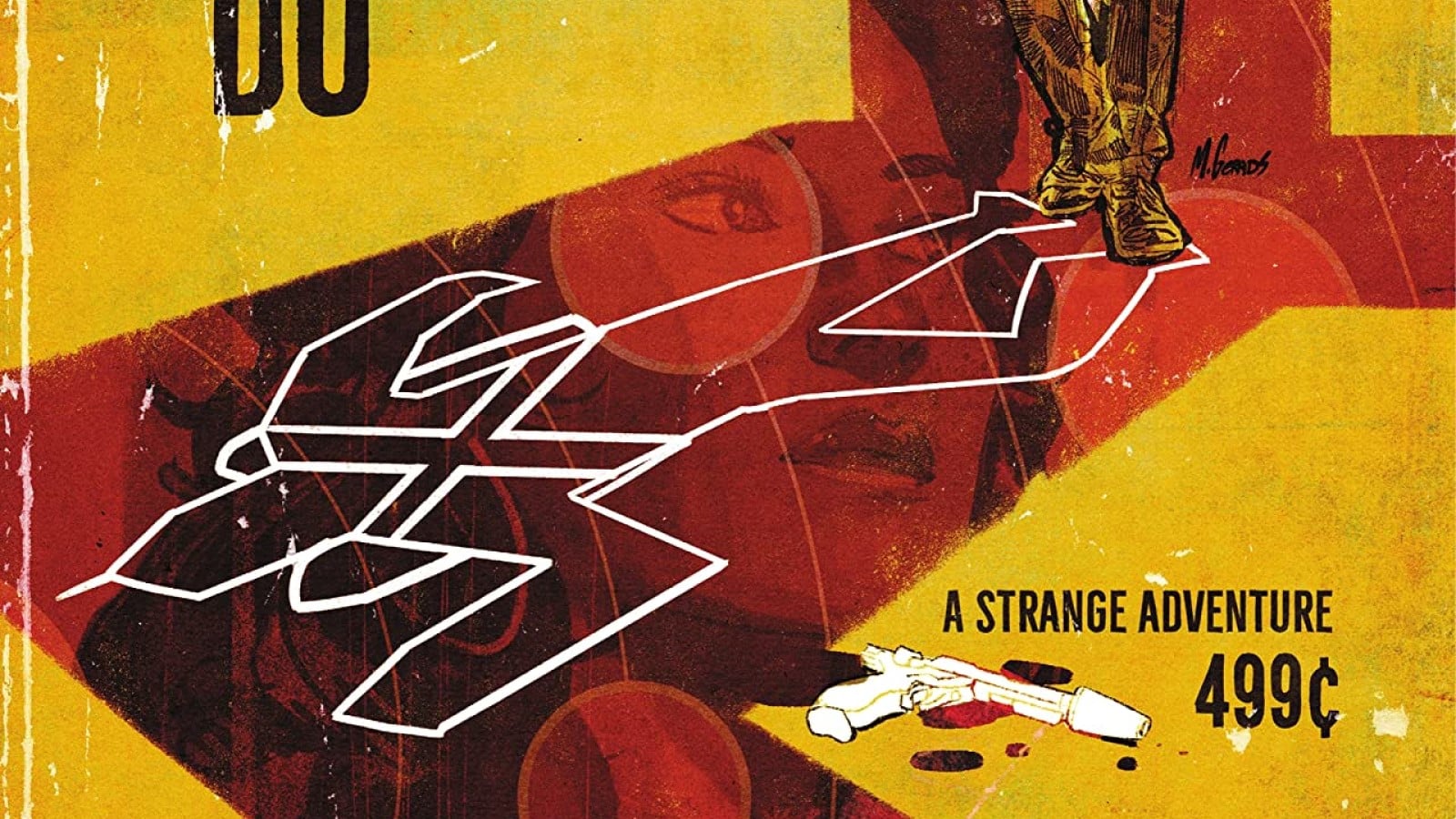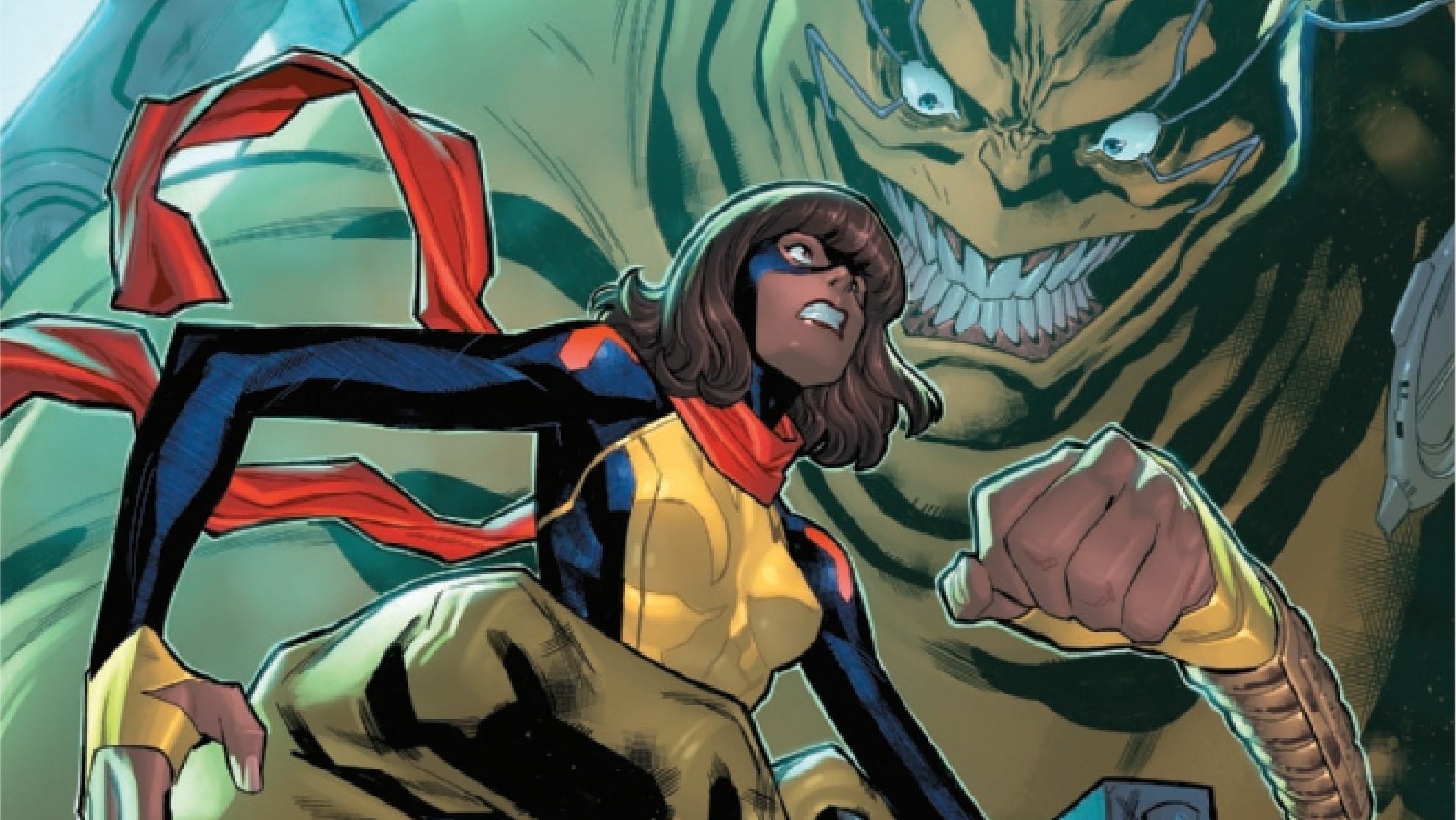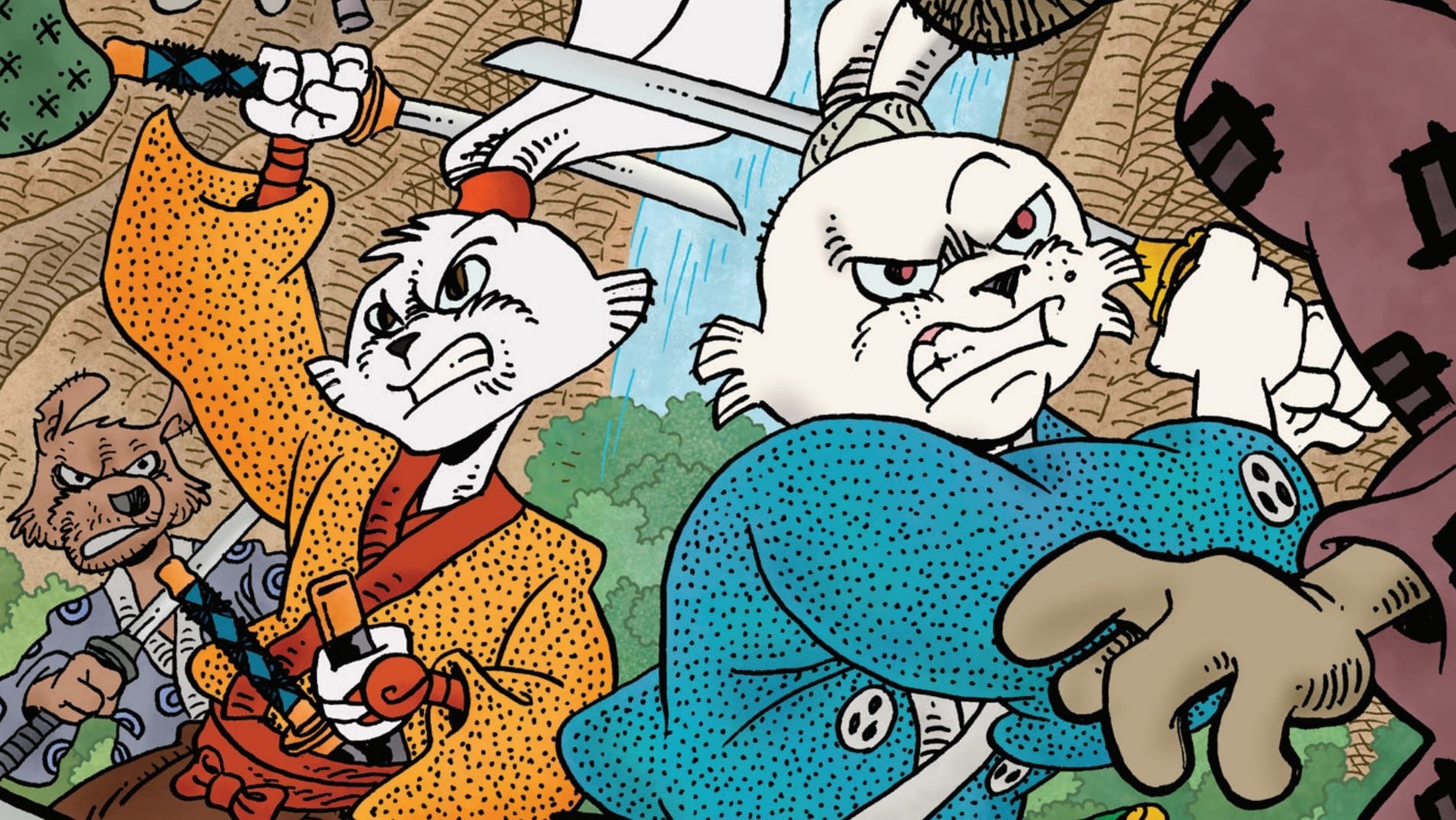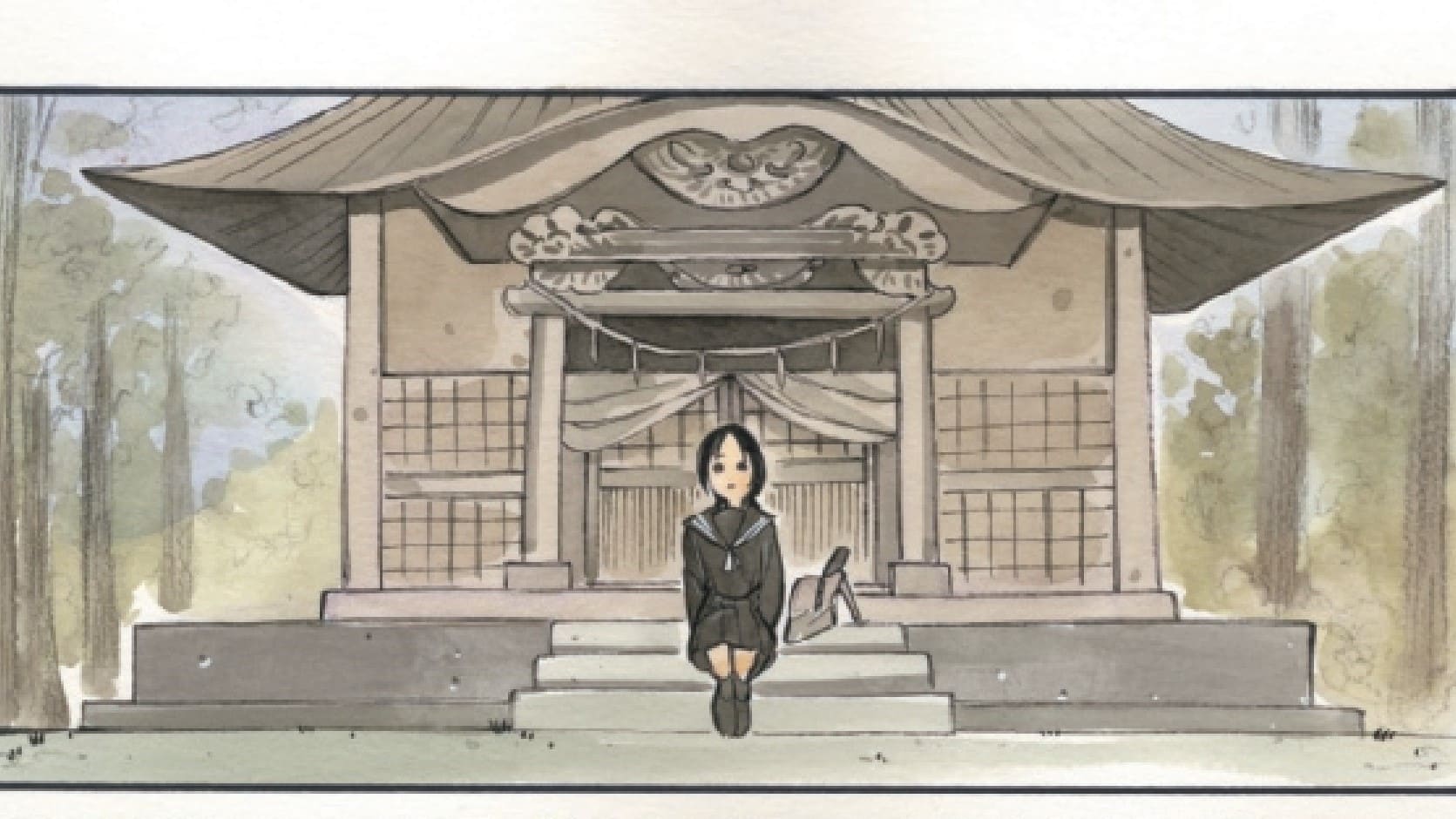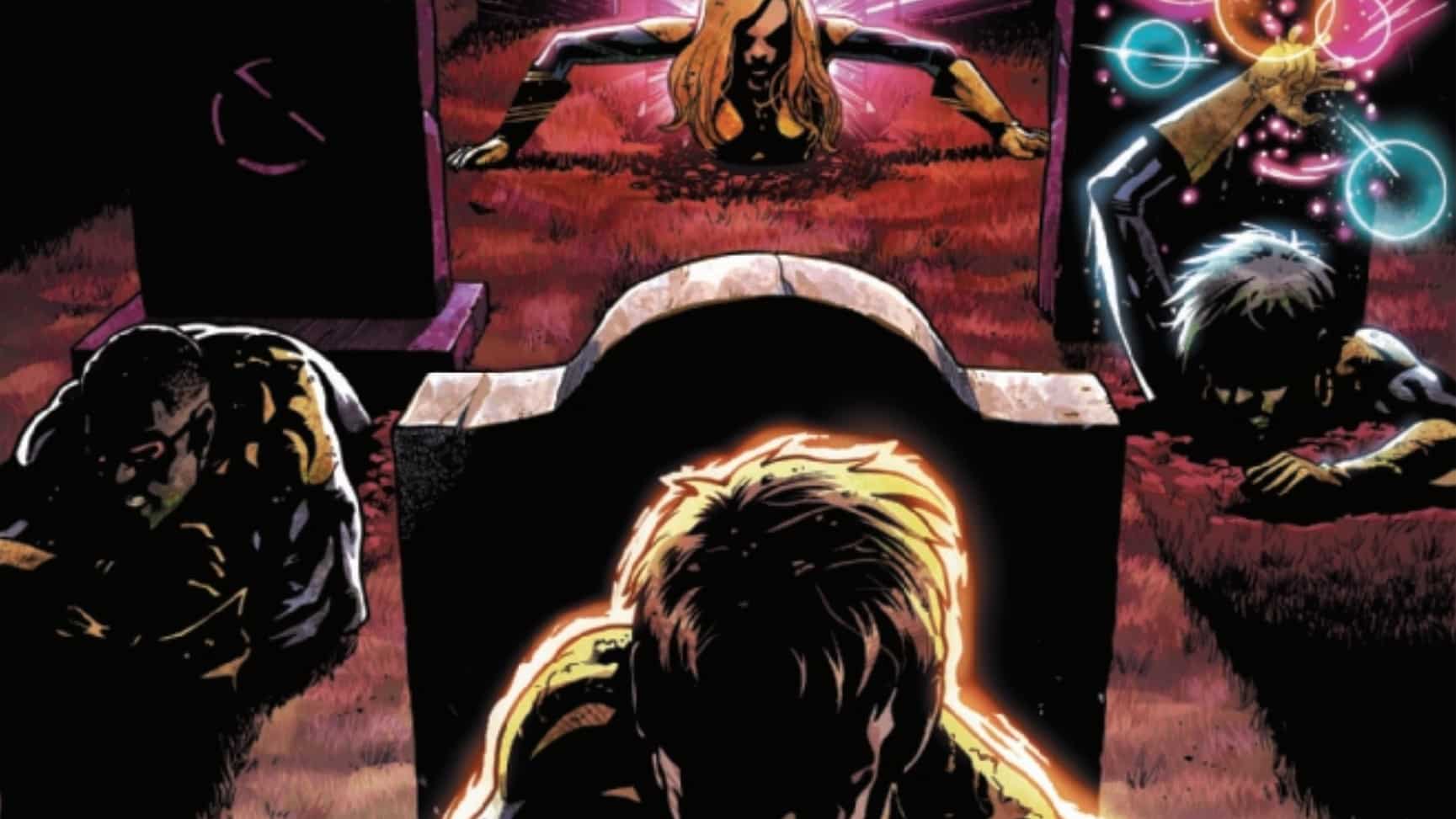No more secrets, no more lies. Alanna has finally confronted Adam about the truth of what happened to their daughter. The truth may soon set Aleea free, but Adam Strange is desperate for it to remain under wraps. The real question is, how desperate? Strange Adventures #11 is Written by Tom King, drawn by Mitch Gerads and Evan “Doc” Shaner, and lettered by Clayton Cowles.
I want to like Alanna. I really do. I argued last month that she, and not Adam Strange, is the true protagonist of this story, in an issue that went a long way toward making me root for her. Despite the humanizing context she’s been given, this issue feels like a step back, turning Alanna Strange into little more than a weapon meant to cause her husband Adam as much pain as possible.
I’m unhappy about how this series has made two characters who really ought to be likable into the most irredeemably petty, married American couple — and make no mistake, this is as American as it gets. Aside from a need for cigarette smoke to mask how weird Earth’s atmosphere is, Alanna brings nothing from her culture to this series’ characterization of her. The relationship these two have had is every tired cliche of American couples arguing about prestige, snipes about what it means to be a man, thrown glasses of alcohol and a fair amount of slapping (which I can do with a lot less of, but what can you do? It does give me a flimsy excuse to share this, which has always made me giggle).
I’m unhappy that it’s been done. But damn if I’m not fascinated with the way they’ve done it.
Let’s put aside the Shaner story for a bit, because this is the most disconnected that story has been from the Gerads story in 11 issues, and I’m looking forward to the unreserved joy I’ll have writing about it later in this review. Let’s just focus on how well Gerads sells what might otherwise be a disappointing, dry and deeply cliched argument.
It’s the moments. The singular, freeze frame moments that you don’t get in other mediums that give so much context to the story being told. Alanna’s face in the first slap — not rage, not pain, just the unsaid, “I don’t know why I expected anything better out of you” in her eyes. Those three panels after Alanna reveals what she knows, first showing how small he feels in the wake of her revelation, more afraid that she knows than he is ashamed of what he’s done. The second panel right after, steeling himself for a difficult conversation and the pain it’s going to cause him. And then, composure regained, the third panel where he dives right back into it and goes into a counterattack with the first thing he can think of, bluster and outrage over semantics because it’s the only thing he has to fight back with.
Hours of being stuck in a car as a child while my parents had arguments like these. In theatrical productions I’ve worked on, months of discussing motivations behind every petty phrase, working and reworking to bring years of history and the patterns of a thousand arguments into a singular moment that says it all. All mediums have a fascination with toxic marriages, but Gerads is nailing these little moments again, and again, saying so much with so little. This is, I think, one of the best ways to consume a story featuring an argument like this — where moments are paused. Where you can dwell on every one, go back and forth with ease, realize just how loaded everything is.
I might have been able to enjoy this comic a lot more if these characters were complete strangers. Where I didn’t have to hate the fact that Alanna’s got the moral high ground, and uses it to reinforce stereotypes about toxic masculinity and heroism to make Adam feel worse. That the thing that seems to be upsetting Adam more than anything else is the idea that he’s weak. The reveal that he’s somehow rationalized his actions as good, as just, that he’s found a way to cling to the idea of himself as a hero, and how … disappointingly predictable that is, for this version of the character.
One thing Tom King has shown consistently throughout this series is how well he handles cliches. How good he is at evoking familiar narrative patterns as he forces them onto a superhero story. The bitter wife belittles the toxic male desperately clinging to his lie-based self-worth, and threatens to expose him. He pulls a gun on her. They struggle, and a single shot is fired, never seen, clearly meant to be an accident. The last page of this issue is less of a cliffhanger than it is a ticked box.
At the same time, King’s narrative shorthand is what makes the Shaner stories so good. Evoking the Edgar Rice Burroughs-eque sense of adventure in a wild, fantastical land. Meeting exotic creatures, bending them to serve you by sheer strength of will, nobility and the righteousness of your cause. Riding on the backs of eerie snow owls who have never aided humans before, but acquiesce to the impossible for this one adventure. Shaner’s art does a lot of the heavy lifting here, too, toward building that thrill.
The classic, bright, adventurous feel he brings to each page — I read a lot of comics every month, and I see a lot of strange things. Snowy owl creatures with weird spindly arms shouldn’t be able to make me feel like I’m seeing something incredible, but Shaner’s artwork has me consistently feeling like I’m a child again, reading my first adventure novels and getting hooked for life. King and Shaner cut right through decades of being jaded by fantasy and science fiction. Hell, if you could somehow pluck the war crime aspect from this tale, and just told a straight-up adventure story, this might have been one of my favorite maxi-series of the … year? Years? It’s been a bit, but you get my drift.
But that story would be a lie, King insists on telling us. This comic works so hard to try to remind you why you first fell in love with adventure stories, so it stings that much more by telling you everything you loved was a lie. It’s something I could appreciate, if there was a point to it — if we saw a little bit of who that lie hurt. If we saw something about how these stories could evolve (and, I cannot stress this enough, have evolved) in the years since. If there was a price to this hubris, or some sense of justice — something I don’t think we’re going to get in the single issue that remains.
No, the entire purpose of this comic seems to be to hurt the people reading it for the things they love. To show just how much pain can come from clinging to the ideals of heroism. It feels like, in many ways, a petty, petty comic book — and on that front, at least, it is certainly hitting its target.
Armaan is obsessed with the way stories are told. From video games to theater, TTRPGs to comics, he has written for, and about, them all. He will not stop, actually; believe us, we've tried.

